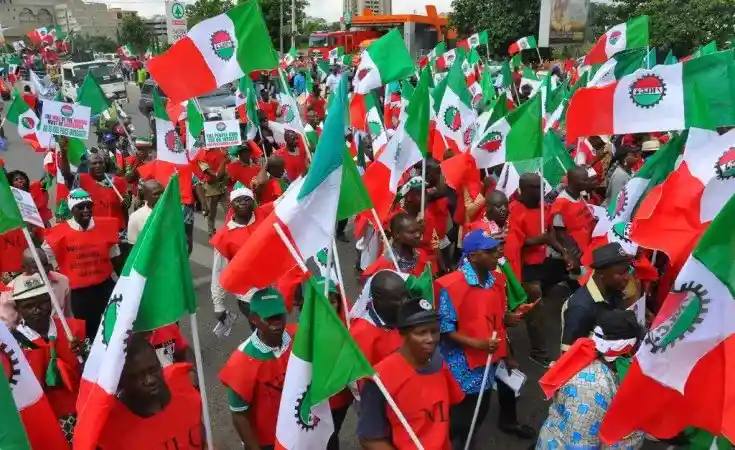Labour Unions Reject FG’s Proposed N48,000 Minimum Wage
The Nigeria Labour Congress (NLC) and Trade Union Congress (TUC) have expressed deep disappointment and rejected the Federal Government’s proposed N48,000 minimum wage, describing it as an insult to Nigerian workers.
The labour unions made this known at a joint press conference in Abuja, stating that the government’s proposal falls short of meeting their needs and aspirations.
NLC President, Joe Ajaero, noted that the Organised Private Sector proposed an initial offer of N54,000, while the least paid workers in the private sector receive N78,000, highlighting the stark disparity between the proposed minimum wage and prevailing standards.
Ajaero emphasized that the government’s failure to provide substantiated data to support their offer exacerbates the situation, undermining the credibility of the negotiation process and eroding trust between the parties involved.
The labour unions walked out of the negotiation process, citing the government’s apparent lack of seriousness in engaging in fair negotiations.
However, they remain committed to advocating for the rights and interests of Nigerian workers and are willing to engage in reasonable dialogue with the government if they show serious commitment to finding a fair and sustainable resolution.
The labour unions are pushing for a minimum wage of N615,000, which they believe reflects the true value of the contributions made by Nigerian workers to the nation’s development and the objective socioeconomic realities that confront Nigerians today.
The development comes after President Bola Tinubu pledged to ensure a living wage for Nigerian workers, and a 37-member panel was established to recommend a new national minimum wage for the country.
The panel is chaired by the former Head of the Civil Service of the Federation, Goni Aji, and has members from federal and state governments, the private sector, and organised labour.

